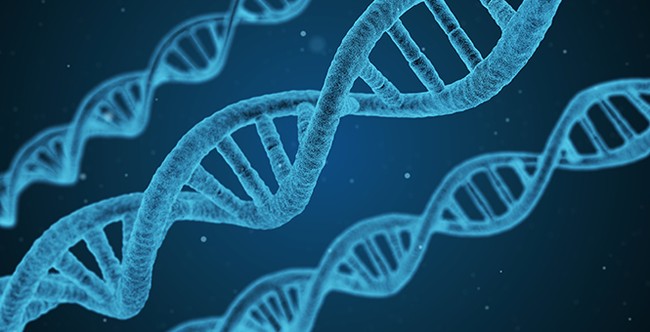We support our Publishers and Content Creators. You can view this story on their website by CLICKING HERE.

My (late) Grandma used to gather her grandkids by her knee and tell a fascinating family story: Her grandmother — our great-great-grandmother — was a beautiful peasant girl in Eastern Europe. One day, a prince was traversing through the countryside, painting landscapes under the watchful eyes of his tutors, when he caught a glimpse of this beautiful peasant girl washing her clothes by the river.
Advertisement
It was love at first sight. Alas, his parents forbade their relationship: She was just a commoner.
So he forsook his birthright and married this peasant girl anyway, becoming a brilliant painter. According to Grandma, he painted the ceiling of one church in Europe in such a unique way that during the daytime, the lighting showed one image; then at nighttime, the shadows shifted and a second, hidden image emerged.
His rivals asked him how he did it, but he refused to reveal his technique. So instead, he was murdered. Poisoned.
Long story short: After his death, his estranged royal family offered to take in his children — but only on the condition that their mother terminated her parental rights and never saw them again. She refused, and her daughter — my great-grandmother — was the first one from that side of the family to emigrate to America.
It’s a very nice story. Unfortunately, a few years ago, I took a 23andMe test… and according to the genetic data, there seems to be (ahem) far fewer members of European royalty impregnating Granny. Her story is genetically impossible.
Grandmas aren’t always sticklers for the truth, I guess.
When 23andMe began in 2006, its founders envisioned it as a fun, turnkey way to share the benefits of genetic testing with the masses. Time Magazine named its direct-to-consumer business model “Invention of the Year” in 2008. In 2021, it became a publicly traded company, with a market capitalization of $6 billion.
Advertisement
Three years later, its value had collapsed to just 2% of what it once was. And within the last 24 hours, 23andMe’s entire team of seven independent directors resigned from its board. One of the key areas of dispute: 23andMe CEO and cofounder, Anne Wojcicki, has declared her intent to take the company private.
Clearly, its current business model isn’t sustainable. It lost $312 million two years ago and doubled its losses — a near-satanic $667 million — last fiscal year. (It’s so gosh-darn surprising that Time Magazine would get a business story wrong, eh?)
Question: What do tech companies do when they’re feeling the brunt of an economic pinch? Why, they sell their assets to the highest bidder: Your personal data.
Data is a commodity. Bundled together, it’s the backbone of the Information Age. With enough data, a company (or a government) armed with artificial intelligence, trainable algorithms, and advanced analytics can exercise vast control over populations. From behavioral modifications to predictive advertisements, the possibilities are endless.
Now, what good is your DNA data? Nobody really knows. It’s a still-evolving field of science. But we already know that 23andMe was the victim of a data leak less than one year ago: In October of 2023, hackers dumped the private, personal genetic data of 7 million 23andMe customers online. What happened next is chilling.
Advertisement
On Internet hacking message boards, the 23andMe genetic data was available for purchase — and was conveniently broken down into ethnic categories: You could purchase one list of Chinese people or another list of Ashkenazi Jews.
In a post-COVID world, we don’t know yet if scientists can genetically manipulate viruses to target and kill certain ethnicities. But scientifically, there’s no reason why one couldn’t modify viruses along ethnic lines. Perhaps it’s just a matter of time. And perhaps, with artificial intelligence systems getting better each week, we don’t have as much time as we think.
Even if you avoided the clutches of 23andMe and (unlike me) didn’t foolishly upload your data, don’t get cocky: Think about ALL the people in your family tree. All it takes is one nitwit to take the plunge, and then they’ve got your data. So your genetic information is only as safe as the stupidest member of your family. (Good luck with that!)
For all the handwringing over Chinese-owned TikTok stealing the data of America’s kids, there’s really no need for TikTok to do anything nefarious. If China wants your data, it’s probably easier to just buy it. Google, Facebook, and countless other “Western” companies are slicing and dicing all the data we’re giving them willingly; why would they jeopardize this trillion-dollar profit model via theft? There’s no need to steal what’s dirt cheap to buy.
Advertisement
So 23andMe will likely sell your data to the highest bidder — foreign or domestic. For a while, it’ll probably sit in a secure system. But eventually, valuable data ALWAYS escapes its cages. This is the Internet; too many people have access, incentive, and the technical know-how to hack into it. And then, your data will be everywhere. Anyone who wants it will have it.
And wherever the science leads us — however genetic testing and/or viral manipulations advance over the next decade or so — will play a major role in the future of our children and grandchildren. Like it or not, the die is already cast.
There’s no putting this genie back in the bottle.

 Conservative
Conservative  Search
Search Trending
Trending Current News
Current News 







